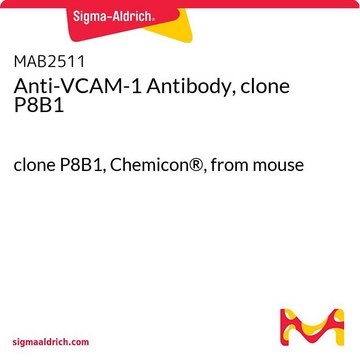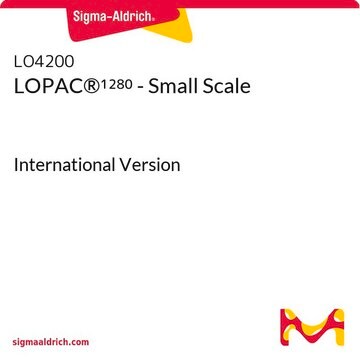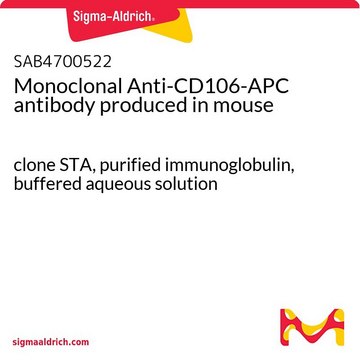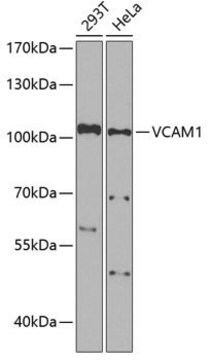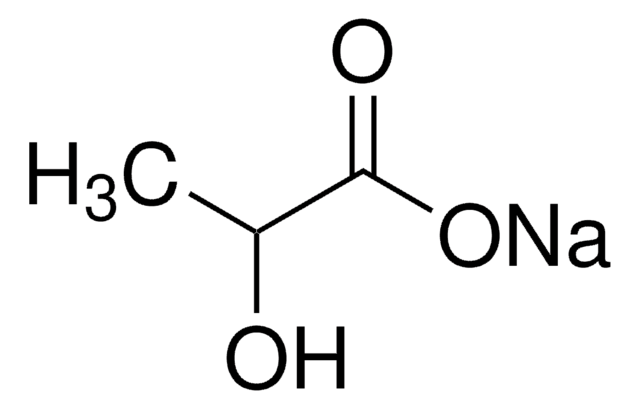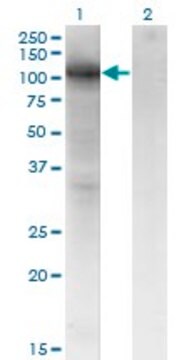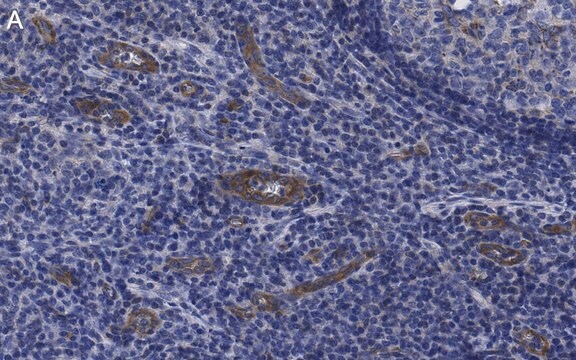V9263
Monoclonal Anti-Vascular Cell Adhesion Molecule 1 antibody produced in mouse
~1 mg/mL, clone 1.4C3, purified immunoglobulin, buffered aqueous solution
Sinonimo/i:
Anti-VCAM-1
About This Item
Prodotti consigliati
Origine biologica
mouse
Livello qualitativo
Coniugato
unconjugated
Forma dell’anticorpo
purified immunoglobulin
Tipo di anticorpo
primary antibodies
Clone
1.4C3, monoclonal
Stato
buffered aqueous solution
PM
antigen 110 kDa
Reattività contro le specie
human
Concentrazione
~1 mg/mL
tecniche
immunohistochemistry (formalin-fixed, paraffin-embedded sections): 2-4 μg/mL using human tonsil tissue
immunohistochemistry (frozen sections): 2-4 μg/mL using human tonsil tissue
western blot: suitable
Isotipo
IgG1
N° accesso UniProt
Condizioni di spedizione
wet ice
Temperatura di conservazione
−20°C
modifica post-traduzionali bersaglio
unmodified
Informazioni sul gene
human ... VCAM1(7412)
Descrizione generale
Immunogeno
Applicazioni
Stato fisico
Esclusione di responsabilità
Non trovi il prodotto giusto?
Prova il nostro Motore di ricerca dei prodotti.
Raccomandato
Codice della classe di stoccaggio
12 - Non Combustible Liquids
Classe di pericolosità dell'acqua (WGK)
WGK 2
Punto d’infiammabilità (°F)
Not applicable
Punto d’infiammabilità (°C)
Not applicable
Scegli una delle versioni più recenti:
Possiedi già questo prodotto?
I documenti relativi ai prodotti acquistati recentemente sono disponibili nell’Archivio dei documenti.
Il team dei nostri ricercatori vanta grande esperienza in tutte le aree della ricerca quali Life Science, scienza dei materiali, sintesi chimica, cromatografia, discipline analitiche, ecc..
Contatta l'Assistenza Tecnica.